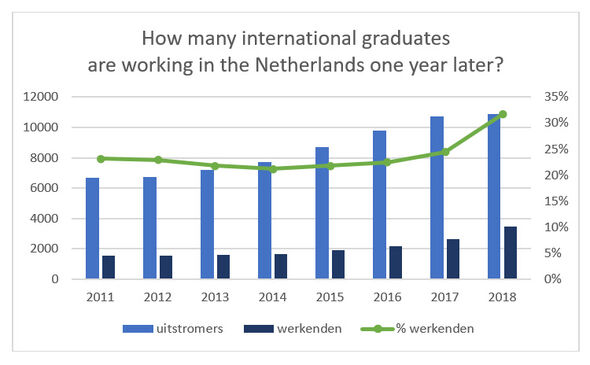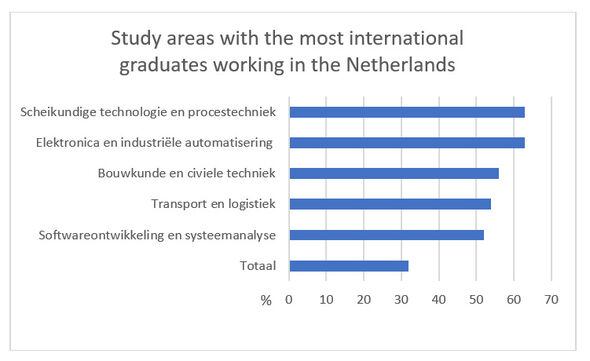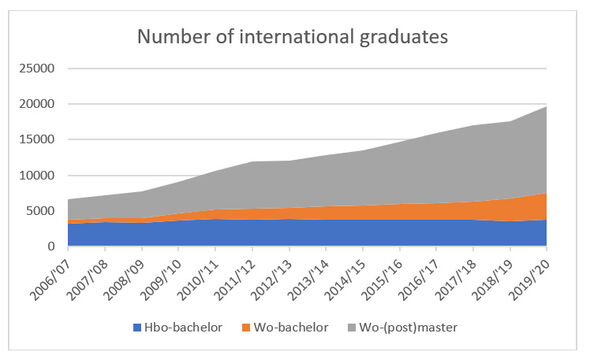To be exact, 32 percent of international graduates have a job in the Netherlands one year after receiving their certificates. Previously, this figure fluctuated around the 22 percent mark, but according to CBS, it has risen sharply among those graduating in 2018.
Some of those in the most recent class entered the employment market during the coronavirus crisis. This was perhaps the reason why they remained more often in the Netherlands to work, regardless of the job. “We do not differentiate between someone finding employment that is relevant to their studies or is working, as it were, in a supermarket”, says CBS spokesperson Tanja Traag.
If indeed it turns out to be a coronavirus phenomenon, this percentage will subsequently decrease again. “An alternative theory is the supply shortage on the employment market”, suggests Traag. “In that case, we would expect this high proportion to be maintained or perhaps even to continue growing.” Later this year, CBS will announce the figures for the class of 2019, reveals Traag.
Trend
In any case, the employment market is certainly having an influence on the likelihood of whether graduates will stay. According to CBS, the study programs with the largest number of graduates staying in the country are almost all of a technical nature. Technology is a so-called ‘shortfall sector’, where many people are required.
On a political level, there have been many calls for the influx of foreign students to be curbed, partly because the government would be investing too much money in students who end up not staying. Others point to the economic benefits of internationalisation. Below the line, they provide money to the treasury, argues the internationalisation organisation Nuffic. They believe the contribution to be around 1.5 billion euros per year.
University students from outside Europe are particularly lucrative. After all, the government does not finance their studies, while the large salaries of those that remain mean that they pay a comparatively high amount of tax.
Most popular study programs
Most international students opt for a Bachelor’s degree in the field of behavioural and social sciences at a university, according to a statement by the CBS last week. Arts programs are particularly popular among those attending a university of applied sciences.
In these study areas, approximately one in four is working in the Netherlands one year after graduating. In comparison, that figure climbs to almost one in two when it comes to technology, IT and services.





Discussion